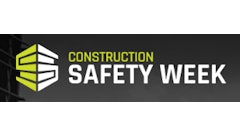
Article is reprinted with permission from The Practical Real Estate Lawyer
Many construction disputes can be resolved through mediation. This series of articles addresses some of the best practices that can lead to success in mediation. The series considers the entirety of the mediation process from preparation for mediation, the mediation session itself,and completion of mediation (if successful, through settlement agreement).
Author Steven C. Bennett wrote an extensive article covering the construction mediation process, so ForConstructionPros.com has broken the article into three smaller articles summarizing parts of Bennett’s original article. The first article discussed preparing for mediation. The second part of the article took a look at conducting the mediation. This third article summarizes completing the mediation process.
This part concerns the “end game” of mediation — coming to settlement terms (if possible), recognizing impasse (if necessary) and following up to document the settlement or plan for further steps aimed at resolving the dispute.
Initial settlement numbers
When the initial settlement numbers are exchanged, parties and counsel sometimes experience “sticker shock;” they complain that the initial demand (or offer) suggests that the other side is “not really serious about settling.”
One simple method to help narrow the gap is to ask (generally, through the mediator) how the other side came to its number. A discussion on that basis may yield movement, as you present a counter that reflects differing views of the elements, and the opposing side comes to recognize that there is “play” in the structure of their analysis.
Alternatively, either because the other side refuses to reveal its formula, or because there actually is no formula on their side, you may wish to respond with your own offer (or demand) tied to a formula of your own. Often, a very significant unilateral move, coupled with a cogent explanation of the rationale for your number, can demonstrate that you, at least, are quite serious about a commitment to pursue settlement, that you “don’t want to play games” with opening numbers, that the number you have proffered is real, and supportable, and that you do not intend to vary much from it, absent good reason.
Establish authority to settle (and know what limits apply)
To ensure implementation of any settlement derived from the mediation, parties should discuss the question of authority in advance. Parties should know, going into the mediation, whether they have authority to settle and whether the other parties involved also have such authority. And they should know, if the authority is limited, what process will be required to implement any settlement that results from mediation. The question of authority not only affects the ability of parties to settle; it also affects timing of payments and other steps that may be required as part of the settlement (e.g., release of liens).
Get creative
What parties can negotiate in the course of settlement discussions far exceeds what a court or arbitrator could order as a remedy. The question is: What can you offer the other side that might satisfy some of their needs, with relatively little impact on your side? As a contractor (claiming losses on a project): Could you accept structured payments (over time)? What about an agreement for additional work on other projects?
Could you offer correction of defective work (perhaps at a reduced rate of payment, or with the owner supplying necessary materials)? What about an extended warranty, in lieu of dollars?
These kind of “out of the box” ideas are generally not the first subject of mediation discussions. But, having such creative ideas in reserve, as “extras” to help close the deal at the end of the process, can be part of smart bargaining.
Be prepared for potential impasse
Often in mediation, parties will “draw a line in the sand” and suggest to the mediator (or, directly, to the other side) that they cannot go any further, or that there are certain elements of settlement that are “non-negotiable.” The key is to keep talking!
Aside from preparation for line-in-the-sand tactics from the other side, parties should avoid creating their own easy path to impasse. This does not mean that a party cannot be firm in bargaining. It is quite valuable to establish priorities for negotiations, that is, to focus on discussion of issues that are essential to meeting your side’s needs. And, in the give and take of negotiations it is entirely appropriate to reject demands and offers that do not meet your needs.
What parties should especially avoid is the view that: If the other side does not agree to one or more essential terms, then there cannot be a deal. That view is short-sighted, in that it is quite possible that, through discussions, the parties and mediator may arrive at solutions that were not previously considered. And it is also quite possible that an opposing party may change its initial rejection of your position, in the course of further bargaining. Maintain commitment to the process, and encourage the other side to do so as well.
Finalize the settlement
Successful mediation typically results in an agreement on the “big picture” elements of negotiation, chiefly the amount of money to be exchanged. While oral contracts are often enforceable, it is far preferable to have a specific, written agreement (at least a Term Sheet listing major points of agreement), signed by the affected parties, as clear evidence of what has been agreed.
And there are important aspects of a settlement (other than money) that should be agreed before the parties leave the mediation site. Is the settlement confidential? What parties will be released by virtue of the settlement? How will any liens on the project be extinguished? How will warranty and indemnity issues be addressed? These kinds of questions should be resolved before the parties declare the mediation process closed.
Follow up and debrief
If the mediation yields a settlement, in most instances, there will be some follow-up work to do. The follow-up may include drafting and signing a more definitive settlement agreement (beyond the Term Sheet that might be executed at the mediation). If the settlement arises out of arbitration proceedings, the parties may wish to have the settlement entered as an agreed order of the tribunal. If it arises in litigation, some form of dismissal agreement or stipulated order may be required. Follow-up on settlement also includes, however, some of the logistical aspects of the mediation, such as final payment of the mediator (or payment through the mediation-sponsoring organization).
If the mediation does not yield a settlement, or if the settlement is only partial, then the parties must plan for their next steps in resolving the dispute. It may be that the conclusion of the mediation session addresses questions of timing and form for further negotiations. If not, then those kinds of questions should be addressed promptly after the parties leave the mediation site. Keep the momentum of negotiations moving, by suggesting a reasonable schedule and structure for further discussions.
In all events, after any mediation session, conduct some form of debriefing within your own negotiating team. What worked during the mediation? What did not work, and what alternatives might better enhance the process in the future? Every mediation is unique, but “lessons learned” from successful (and even unsuccessful) mediation can help guide strategies in future proceedings.
Part 1: Preparing for Mediation
Part 2: Conducting the Mediation
Read the entire article, Construction Mediation: Best Practices for Success.
Steven C. Bennett is a partner in the New York City law firm of Park Jensen Bennett LLP. The firm, consisting of three partners who previously served in the United States Attorney’s office together, and later (separately) as partners in three major international law firms, focuses on commercial disputes and white collar investigations. Mr. Bennett has extensive experience in construction dispute resolution, and also serves as an arbitrator and mediator for the American Arbitration Association.


















